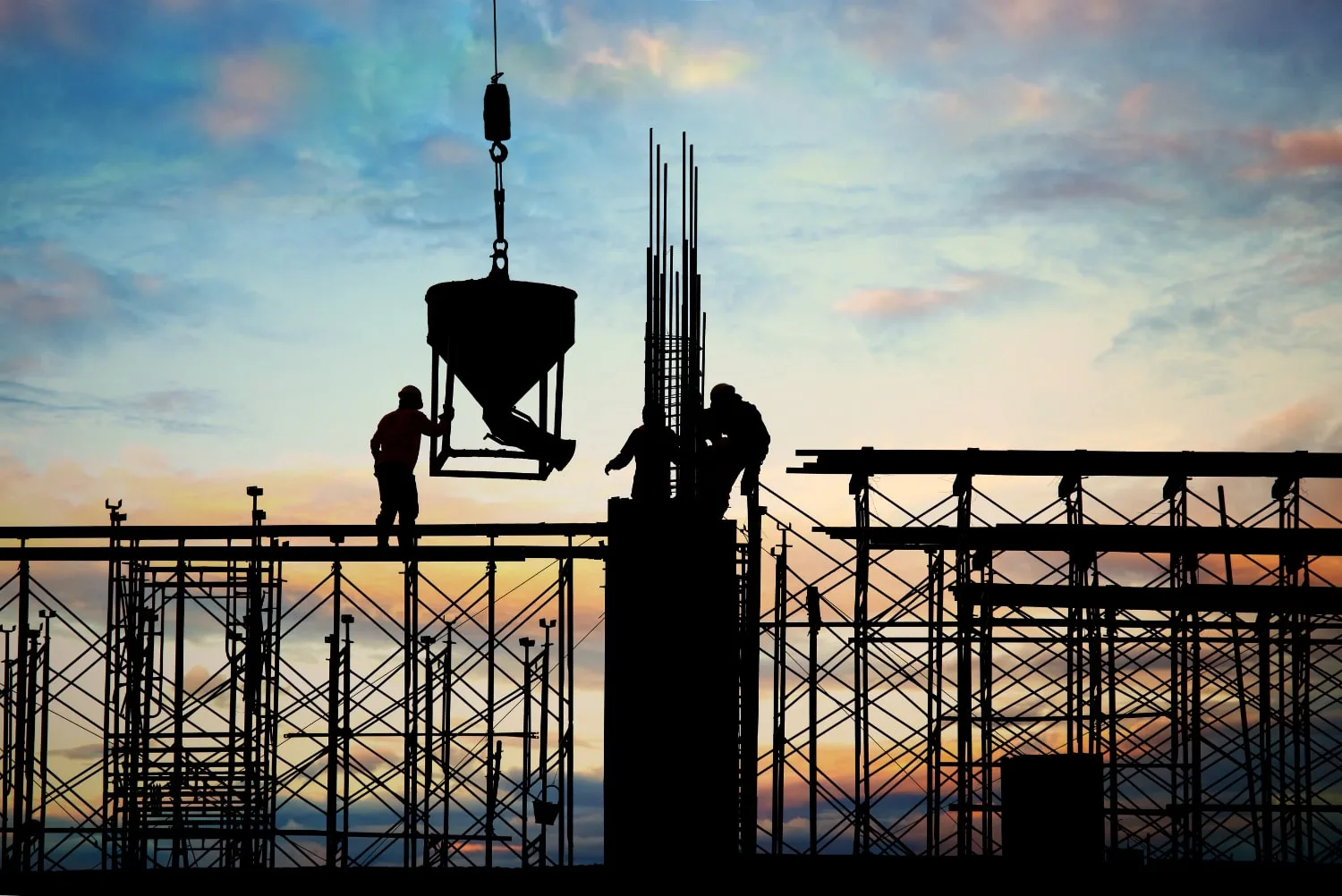The Rebuild Illinois initiative represents a significant milestone in the state’s commitment to improving and modernizing its infrastructure. Launched in 2019, this ambitious program aims to address the longstanding needs of roads, bridges, public transit systems, and facilities across Illinois. With an estimated investment of $45 billion over six years, the initiative seeks to create safer and more efficient transportation networks, enhance public spaces, and foster economic development through robust infrastructural improvements.
The primary objectives of the Rebuild Illinois initiative are to enhance the quality of life for residents, promote job creation, and stimulate local economies. By providing critical funding for various infrastructure projects, the initiative not only addresses immediate repair and maintenance needs but also invests in sustainable and resilient structures that will serve the state for decades. This comprehensive Capital Plan facilitates partnerships between state agencies, local governments, and private sector entities, ensuring a collaborative effort to revitalize Illinois’ aging infrastructure.
For contractors operating in Illinois, including general contractors like the VMC Group, this initiative brings both challenges and opportunities. As the demand for construction services increases due to numerous projects funded under this plan, Illinois contractors must prepare to meet these demands by enhancing their capabilities and expanding their workforce. Additionally, the focus on infrastructure modernization entails adherence to new standards and techniques that can redefine how construction and development are approached in this state.
In light of these developments, it is crucial for stakeholders in the construction industry, including contractors and suppliers, to stay informed about the Rebuild Illinois initiative and its impact on the marketplace. Understanding the goals and requirements of the Capital Plan will be essential for ensuring that businesses are well-positioned to capitalize on the opportunities it presents while contributing to the state’s overall growth and modernization.
Overview of the Capital Plan
The Capital Plan, a cornerstone initiative for the state of Illinois, aims to revitalize the infrastructure and stimulate economic growth across various sectors. This extensive plan encompasses diverse projects, ranging from transportation enhancements to public facility upgrades. Critical projects under the Capital Plan include the construction and rehabilitation of highways, bridges, public transit systems, and educational institutions. By targeting these vital areas, the plan seeks to address long-standing structural deficits while meeting the demands of a growing population and economy.
Funding for the Capital Plan is derived from a combination of state, federal, and local sources, as well as public-private partnerships. These funding mechanisms are designed to ensure that essential projects can proceed without undue delays, thereby providing Illinois contractors, including the VMC Group, with ample opportunities to engage in meaningful work. With a substantial budget allocation, the Capital Plan allows for both immediate and long-term infrastructure improvements, which will inherently have a cascading effect on economic activity throughout the state.
The overarching goals of the Capital Plan include not only the enhancement of physical infrastructure but also the creation of jobs and boosting the local economy. By investing in projects that improve the quality of life for residents and businesses alike, the plan aims to promote a robust economic framework, facilitating growth for contractors within Illinois. As the role of general contractors becomes increasingly central to the successful implementation of these projects, the Capital Plan thus represents a significant milestone, providing both challenges and rewards for Illinois contractors in the coming years.
Impact on the Construction Industry
The Capital Plan in Illinois is set to enact significant changes within the construction industry, presenting a plethora of growth opportunities for contractors, including general contractors such as the VMC Group. By allocating substantial financial resources to enhance infrastructure, the plan aims to not only address current maintenance needs but also stimulate economic development throughout the state. This initiative is expected to catalyze an increase in construction projects, which will benefit a wide array of Illinois contractors.
One of the foremost impacts of the Capital Plan will be job creation across various sectors within the construction industry. As projects materialize, there will be a rising demand for skilled labor to support the execution of these initiatives. This demand for skilled tradespeople will not only increase employment rates but also provide opportunities for training and apprenticeship programs, which are essential for cultivating the next generation of workers in Illinois.
The revitalization of aging infrastructure is a priority within the Capital Plan, which includes roads, bridges, and public transit systems that have long been neglected. By investing in these critical components, the policy aims to improve overall safety and efficiency for the citizens of Illinois. General contractors, such as VMC Group, are likely to play a pivotal role in this process, leveraging their expertise to ensure these projects meet the required standards and timelines.
As a result, the Illinois construction industry is poised for a transformative period, characterized by increased investment, job creation, and the potential for enhanced collaboration among contractors. The anticipated growth is not just an opportunity for financial gain, but also a chance to contribute to the welfare and development of communities across the state, ensuring that infrastructure investments yield long-lasting benefits.
Opportunities for Contractors
The implementation of the Capital Plan in Illinois presents a myriad of opportunities for contractors, particularly for those aligned with prominent firms like VMC Group. As a general contractor operating within the state, VMC Group is poised to leverage the funding and resources provided by the Capital Plan to maximize project capabilities. In 2026, the plan aims to facilitate numerous infrastructure projects, creating an environment ripe for new project bids that contractors can capitalize on.
With substantial financial investment earmarked for various development projects, general contractors in Illinois will have the chance to engage in competitive bidding processes. This influx of projects—ranging from roadway improvements to facility renovations—will not only enhance infrastructure but also support local economies. Contractors who can demonstrate innovation and value in their proposals will likely position themselves advantageously in this burgeoning market.
Moreover, the Capital Plan fosters an ecosystem that encourages subcontracting opportunities. Illinois contractors specializing in niche fields such as electrical, plumbing, or environmental services can form synergies with larger general contractors to ensure comprehensive service delivery. By collaborating, they can benefit from shared resources and expertise, thereby enhancing their prospect for success in securing contracts under the Capital Plan. Such partnerships are invaluable, as they may lead to sustained relationships that extend beyond the initial projects.
Additionally, the potential for long-term partnerships with state and local governments cannot be overstated. As contractors successfully execute projects under the Capital Plan, they will not only gain valuable experience but also build a reputation that could open doors to future government contracts. Contractors who align themselves with the goals of the Capital Plan will find themselves at the forefront of a transformative period in Illinois, reinforcing their standing in the competitive landscape of Illinois contractors.
Challenges Contractors May Face
The implementation of the Capital Plan in Illinois is poised to bring about numerous opportunities for growth and development across the construction sector. However, general contractors, including firms operating within the vmc group, must also prepare for a variety of challenges that may arise throughout the project’s lifespan. One of the primary concerns is the ongoing labor shortage that has plagued the industry. As Illinois contractors seek to scale their operations to meet demand, they may struggle to find qualified workers who possess the necessary skills and experience. This shortage can hinder project timelines and increase labor costs, further complicating the landscape for general contractors.
Additionally, the construction industry is facing significant supply chain disruptions that may impact the availability of materials and equipment. Issues such as increased lead times, fluctuating material prices, and transportation delays can severely impede project progress. Contractors must adopt strategic sourcing and relationship-building practices with suppliers to mitigate these challenges. By establishing strong partnerships, general contractors in Illinois can enhance their chances of securing timely deliveries and competitive pricing, which is crucial for maintaining budget constraints.
Project management complexities also present a critical challenge as multiple stakeholders, including subcontractors and government entities, become involved in the Capital Plan initiatives. Effective communication and coordination are essential to ensure that all parties remain aligned with project goals and timelines. Implementing robust project management software or methodologies can assist contractors in navigating these complexities, ultimately leading to improved efficiency.
In response to these challenges, contractors must adopt innovative solutions, foster workforce development initiatives, and engage in proactive supply chain management. By addressing these potential obstacles head-on, Illinois contractors can successfully navigate the evolving landscape of the Capital Plan and position themselves for future success.
Compliance and Regulations
Compliance with state and federal regulations is critical for contractors engaging in projects under the Capital Plan in Illinois. The importance of adhering to various legal standards cannot be overstated, as these regulations not only ensure safety and environmental protection but also shape the overall integrity of construction practices. Illinois contractors must remain vigilant and informed about the myriad of compliance requirements that govern their operations.
Safety standards are paramount in construction and must be strictly observed. The Occupational Safety and Health Administration (OSHA) sets forth specific guidelines that all contractors, including the VMC Group, must follow. These standards are in place to protect workers from potential hazards on the job site. Regular safety training, proper use of personal protective equipment, and implementing safety plans can significantly reduce accidents and injuries, ensuring a safer working environment for all involved.
Moreover, environmental regulations play a vital role in the compliance framework for Illinois contractors. Projects funded by the Capital Plan are often subject to the National Environmental Policy Act (NEPA), which mandates thorough environmental assessments and permits prior to initiation. Contractors must engage in practices that minimize environmental impact, including responsible waste management, pollution control, and sustainable resource use. Adhering to these regulations not only fulfills legal obligations but also demonstrates the commitment of contractors to environmental stewardship.
In addition to safety and environmental standards, legal considerations extend to procurement processes, payroll practices, and labor relations. Contractors are required to comply with wage laws, ensuring fair compensation for workers, and uphold ethical practices throughout their projects. This comprehensive approach to compliance not only fosters a positive working environment but also enhances the reputation of Illinois contractors in the industry.
In conclusion, compliance with state and federal regulations is fundamental for contractors participating in the Capital Plan. By prioritizing safety, adhering to environmental standards, and attending to other legal requirements, contractors can contribute to a successful and sustainable construction landscape in Illinois.
Technological Advancements in Construction
The construction industry has undergone significant transformations over the past few years, largely driven by technological innovations that aim to enhance efficiency and productivity. As Illinois contractors prepare for the upcoming Capital Plan initiatives, leveraging these advancements can prove advantageous. Key technologies such as Building Information Modeling (BIM), drones, and sustainable construction practices have emerged as essential tools for modern general contractors in Illinois.
Building Information Modeling (BIM) stands at the forefront of these technological advancements. This digital representation of physical and functional characteristics of facilities allows contractors to create accurate real-time 3D models of their projects. Such models facilitate better project visualization, efficient resource management, and effective collaboration among various stakeholders, ultimately reducing project costs and enhancing delivery timelines. In Illinois, where construction demands are increasing due to the Capital Plan, the use of BIM can significantly streamline processes for general contractors.
Drones are another innovative tool reshaping the construction landscape. By providing aerial imagery and data collection, drones enable contractors to conduct comprehensive site surveys more effectively than traditional methods. They assist in monitoring job sites, tracking project progression, and enhancing safety protocols. This is particularly crucial for Illinois contractors managing large-scale infrastructure projects under the Capital Plan, where accurate assessments and real-time data can prevent delays and facilitate timely decision-making.
Additionally, embracing sustainable construction practices aligns perfectly with the objectives of the Capital Plan, which emphasizes responsible development. Incorporating energy-efficient materials and techniques, as well as waste reduction strategies, not only complies with environmental regulations but also appeals to a growing base of eco-conscious clients. As the VMC Group and others navigate this evolving landscape, integrating these technological advancements can be a catalyst for success in the Illinois construction sector.
Networking and Collaboration Opportunities
As the Capital Plan takes shape in Illinois, potent networking and collaboration opportunities arise for contractors eager to engage effectively with the initiatives outlined. For contractors, particularly those within the VMC Group and similar organizations, forging relationships with government agencies and industry peers can significantly enhance their involvement in the overall execution of projects. This collaboration not only improves project visibility but also fosters an environment for shared knowledge and resources.
To build fruitful relationships with government agencies, contractors can leverage formal channels such as industry forums, public hearings, and workshops dedicated to the Capital Plan. Participating in these events provides a platform for understanding upcoming projects and insights into procurement processes. Engaging with decision-makers helps contractors identify specific needs and align their capabilities with the expectations of government agendas, thus increasing their chances of securing contracts as the Illinois contractors market expands.
Moreover, industry gatherings and networking events present a prime opportunity for contractors to connect with their peers and potential subcontractors. Establishing ties within the contractor community enables sharing best practices, resource pooling, and collaborative bidding. Consider joining local trade associations, such as those specific to Illinois, to participate in events designed to unite professionals from various backgrounds. Such networking initiatives can lead to strategic partnerships that enhance competitiveness in bidding processes for projects under the Capital Plan.
Incorporating digital tools for networking can also prove beneficial. Platforms such as LinkedIn can facilitate connections and discussions among contractors and industry leaders. Actively participating in online forums enables contractors to stay updated on market trends, best practices, and innovative solutions, thus further refining their ability to respond to the evolving landscape shaped by the Capital Plan.
Looking Ahead: The Future of Construction in Illinois
The Capital Plan, established to rejuvenate Illinois infrastructure, signifies a transformative phase for the construction industry. As we look ahead to 2026 and beyond, the implications of this initiative for contractors within the state are profound. This plan not only outlines immediate investment in roads, bridges, and public transit but also serves as a catalyst for long-term growth in the construction sector. Illinois contractors, particularly general contractors, must adapt to the ongoing changes dictated by this strategic investment.
One of the most significant forecasts stemming from the Capital Plan is the expectation of sustained infrastructure funding. Analysis suggests that this commitment to rebuilding and modernization will continue well past 2026. The VMC Group, along with other prominent Illinois contractors, can expect a greater volume of projects. This environment opens numerous avenues for growth, diversification of services, and expansion into various sectors of construction.
Read: Biophilic Design in Illinois and Indiana: Principles, Applications, and Regional Insights
Moreover, with increasing emphasis on sustainability and smart technology in infrastructure development, contractors must embrace innovative practices. Integrating green construction techniques and utilizing advanced construction technologies are becoming prerequisites for success. General contractors in Illinois will benefit from staying ahead of these trends, ensuring compliance with evolving regulations and addressing the community’s needs effectively.
Furthermore, collaboration among contractors is encouraged. By forming partnerships and alliances, companies can pool resources, share expertise, and tackle larger projects that may arise from the sustained investment in infrastructure. As the landscape of construction becomes more competitive, Illinois contractors must enhance their strategic positioning by cultivating relationships with governmental agencies and other stakeholders.
In conclusion, the future of construction in Illinois, bolstered by the Capital Plan, presents a landscape rich with opportunities. Emphasizing innovation, collaboration, and adaptability will be crucial for general contractors aiming to thrive in the ensuing years. By recognizing and acting on these trends, the VMC Group and its counterparts can secure their place in the evolving market.



